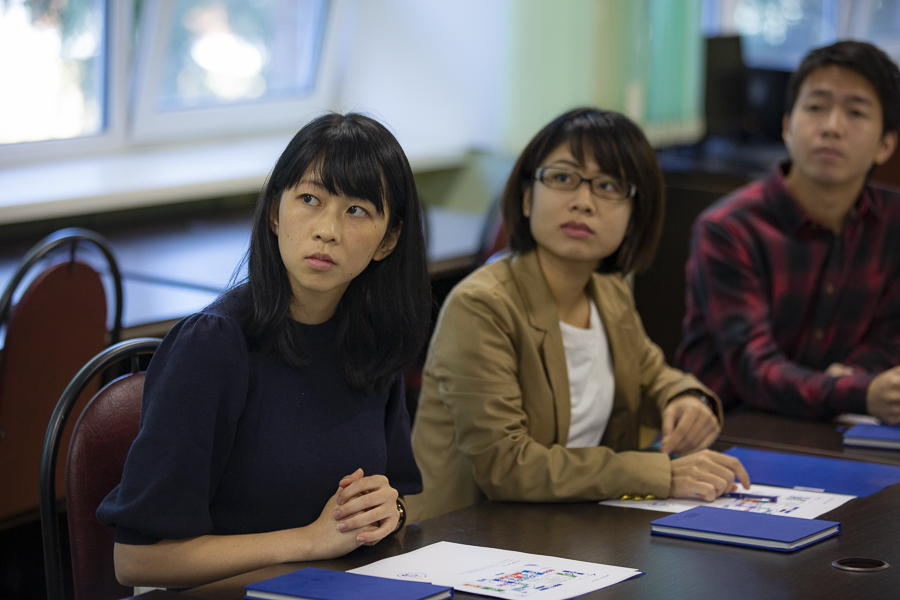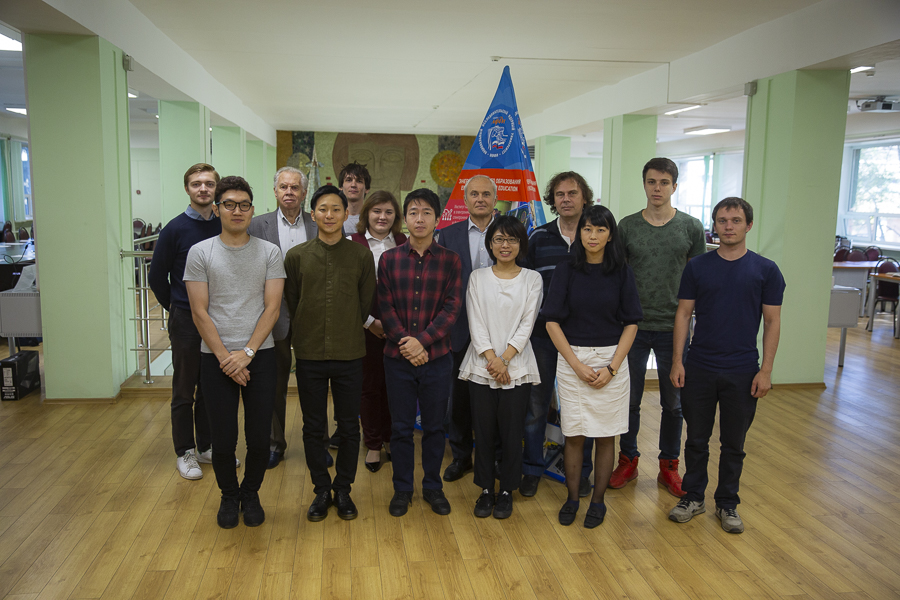MEPhI is actively developing student exchange programs with foreign universities. Cooperation with the Tokyo University of Technology is a successful example of such cooperation. It is held within the framework of the five-year "Russian-Japanese program of human resources development in the field of technology-leaders in health care, medical industry, nuclear and energy industry", which started in 2017. Georgy Tikhomirov, curator of the program, Deputy Director of the Institute of Nuclear Physics and Engineering at MEPhI, told about the aims and practice of cooperation with Japanese partners.
- Georgy Valentinovich, how did the interaction between MEPhI and Tokyo University of Technology start?
— We cooperate with various Japanese universities, including this one. The Tokyo University of Technology is one of the leading technical universities in Japan, and we are particularly pleased that over the past decades we have developed friendly relations.
Our cooperation began in the 1990s and, after a short pause, was resumed in 2015, when we signed another Memorandum of cooperation. After that, in sight of improving relations between Japan and Russia, we tried to formulate a joint project. Our partners managed to get funding from the government of Japan for internships of students and teachers – Japanese in Russia and Russian in Japan. The "Russian-Japanese program of human resources development in the field of technology-leaders in health care, medical industry, nuclear and energy industry" was created.
As partners in this program, the Tokyo University of Technology chose MSU (in the field of health and medical industry) and MEPhI (in the field of nuclear energy).
- How is the student exchange going?
- Our master degree and post-graduate students have internships at the Tokyo Institute of Technology, which lasts two weeks or three months. Students come from Japan to us respectively. Participants of the program is chosen on a competitive basis.
The first exchange trips took place in 2017. We visited Japanese laboratories, met with professors and expressed our wishes with whom we would like to cooperate. For our part, in INPhE, we also provide foreign colleagues with the opportunity of choice.
Recently, Japanese students came to us for the second time — four for a two-week internship and one for three month. They were divided into four laboratories.
We also have Russian-Japanese forums in the form of mini-conferences, where students and teachers from both countries exchange presentations about their laboratories and scientific work.
— What is the meaning of such an exchange?
– Our Japanese partners expect that the cooperation program will help them to attract the attention of their students to health, medical, nuclear and energy industries as promising areas for Japan.
Such an exchange of students is consistent with our work on the program to improve the competitiveness of Russian universities, Project 5-100, and is conducted in the framework of the development of MEPhI international activity. Such projects are also very useful for the modernization of the master's and postgraduate courses of our University.
In general, academic mobility is very important for the development of a future researcher. It gives an incentive to study in-depth not only his specialty and foreign developments in this field, but also a foreign language, because the working language of the program — English.

— What are the Japanese interested in first and foremost? We can assume that topics are related to Fukushima, nuclear power safety…
— Yes, of course, the topic of elimination of consequences at the Fukushima-1 nuclear power plant in Japan remains relevant, and we cooperate on this issue beyond the student exchange program as well.
Last year, our scientists took part in the Russian-Japanese seminar on the problems of Fukushima. We saw that Japanese scientists and engineers have made a lot to eliminate the consequences of the disaster. They did a lot of work with the damaged blocks and closed the destroyed reactors with caps. At the same time, the problem of monitoring and control of the radiation situation has not been fully resolved yet.
Another problem is to find a way to safely remove corium from reactor - a mixture of nuclear fuel with concrete and metal parts, which was formed during the accident when the reactor core was melting.
Japanese scientists are discussing with our researchers ways to solve these problems together. MEPhI has strong developments in the field of detectors for monitoring, and we could offer our developments to our foreign colleagues.
In addition, Japanese researchers are interested in the prospects of development of nuclear technologies. It is no coincidence that they chose such areas as radiation materials science, x-ray structural analysis of materials, radio detectors, precision modeling of innovative nuclear facilities and the development of simulators for nuclear power plants for practical training at our Institute.
— What effect do you see from the recent training of INPhE students in Japan?
— Our students have gained tremendous experience. They expanded their horizons and got an incentive to learn English and be engaged in professional development.
For example, our graduate student Anton Smirnov, who is actively involved in the reception of the Japanese delegation, passed a two-week internship in Japan last year. There he proved himself well, and our partners agreed on his candidacy for the next three-month trip. This can be considered as an element of his career development. An Anton's example shows to other students that everything is possible.
This year we have received about ten applications from students to participate in the program, and those who have not been chosen, will try to represent their candidates much better next time, it is useful for their development. I think we are at the beginning of a very interesting journey.
— Do Japanese teaching methods differ from Russian?
— This year the Japanese came to us for the second time. The first time we started with excursion lectures, but the Japanese corrected us: "No, no, we need individual work in the laboratory." When our guys went to Japan, the local approach to the internship also seemed unusual to them: they were left in the laboratory with words, "Do this”.
At the same time, this independence is useful. The experience of participation in unfamiliar educational process enriches both sides, we have much to learn from each other.
— What difficulties do you have to solve in the process of working together?
— When a foreign student comes to us, we usually do not know the level of his training. On the one hand, we are afraid to frighten him with difficult tasks, and on the other hand, we are afraid to drop our reputation overly simplifying tasks. But this is a good thing of full-time internships - you can correct the work in accordance with the real level of a student during the training process. The feedback we receive from the curators of the program from Japan shows that we are doing everything right.

— How do you plan to develop cooperation with the Tokyo University of Technology?
— Of course, the purpose of our joint program is not only trips. We want to formulate common projects and submit joint applications for grants from the Russian Science Foundation with the participation of students. Ideally, it will allow students to participate in joint scientific work that can enrich Russia and Japan in terms of technology development.





